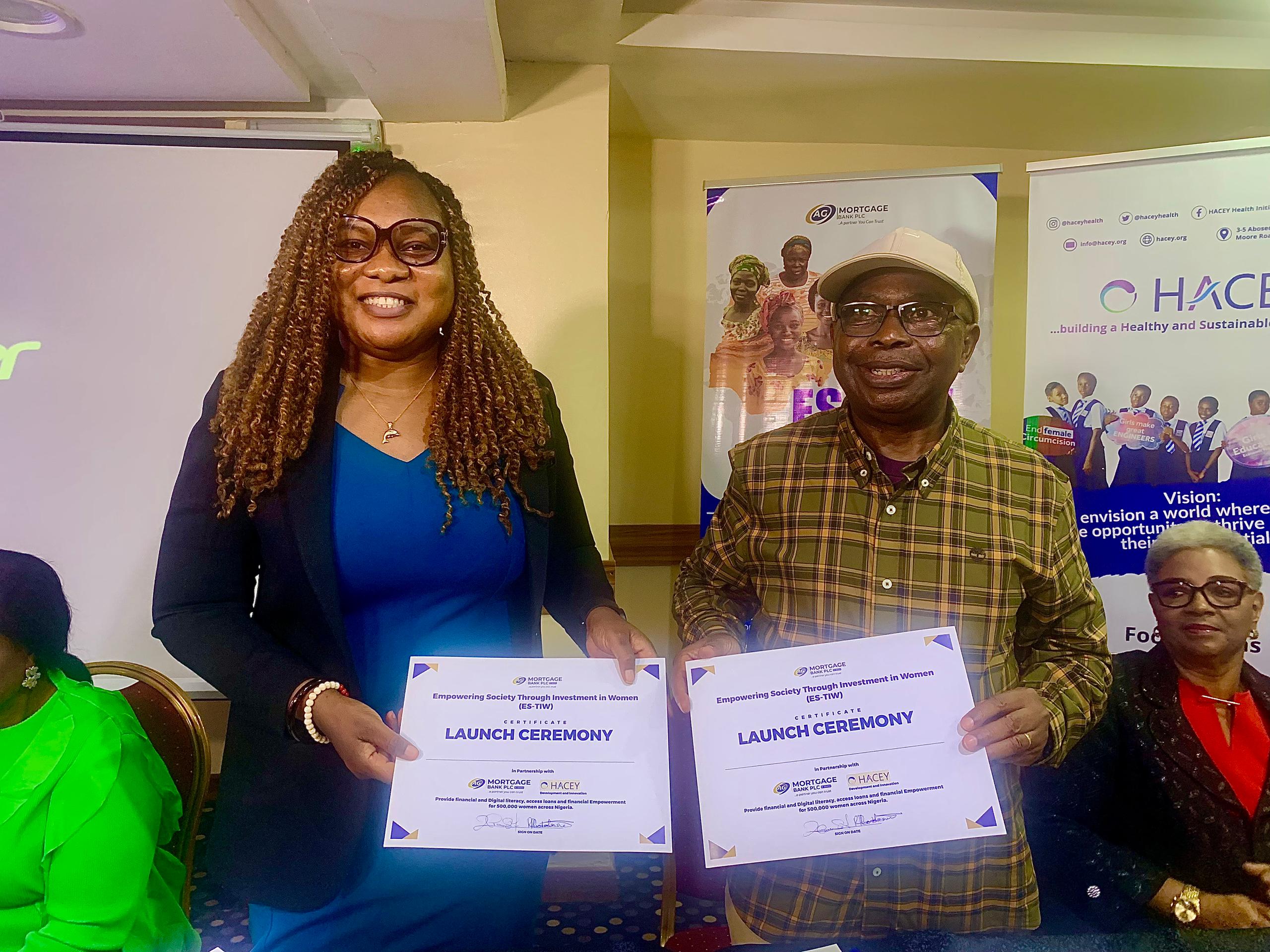BUSINESS
AG Mortgage Bank commits N100m to empower 500,000 women

AG Mortgage Bank has earmarked N100 million to enhance the health and economic empowerment of 500,000 women in five states.
Its Managing Director, Mr Ngozi Anyogu, said this at the inauguration of the Empowering Society Through Investment in Women (ES-TIW) Project on Friday in Lagos.
Anyogu said the ES-TIW Project, which would be implemented in collaboration with Hacey Health Initiative, was designed to empower the Nigerian economy by strengthening the role of women.
According to him, the goal of the project is to empower women, leveraging the existing groups in local communities.
“This goal will be achieved through business development, healthcare access, community engagement, financial inclusion, and digital literacy.
“These skills shall ultimately contribute to the overall socio-economic well-being and resilience of the nation.
“Women represent the group most influenced by government policies because of the pivotal role they play in the family.
“Such an economically powerful group cannot be ignored but rather deployed to catalyse the overall economy,” he said.
Anyogu said that the ES-TIW programme would be piloted in Lagos, Abuja, Edo, Delta and Abia states, with plans to expand its footprint to others soon.
He stressed that the bank was deliberate in driving training in financial services and other sustainable support programmes to expand the financial inclusion of women to business support loans and services.
According to him, the deliberate policy of the bank is to give 40 per cent of leadership roles to women, including executive and senior management positions and headship of Board and Management committees.
“Our managerial environment is gender friendly such that it unlocks the potential of women, protects their dignity and creates necessary balance in their lives,” he said.
Similarly, Rhoda Robinson, Executive Director of Hacey Health, said the partnership was an actualisation of efforts to promote gender equality and women’s access to resources.
Robinson said that the project would deliver comprehensive business education and skill training to build the capacities of women entrepreneurs in micro and small businesses.
She noted that this would equip them with the knowledge and tools to manage their businesses effectively.
“This project is designed such that women also receive support in terms of education and information provided to them, not just for financial development but also for their healthcare.
“This is because we recognise that health expenses are one of the leading expenses that women and families spend on, and as such, it digs into their savings.
“So, while we can train women to be financially savvy, provide them with financial products and access to goods.
“We are also ensuring that they understand how to better care for themselves and their families. That’s why linking them to health services and health products is important,” she said.




 Davido's Net Worth & Lifestyle
Davido's Net Worth & Lifestyle 
